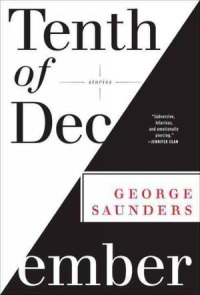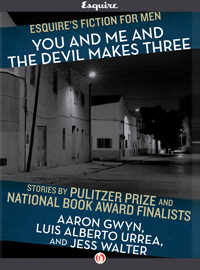Get in Trouble by Kelly Link
 Wednesday, March 18, 2015 at 1:38AM
Wednesday, March 18, 2015 at 1:38AM 
Published by Random House on February 3, 2015
There's something a little out of whack about the worlds in which Kelly Link's characters live. Babies are born without shadows or with an extra shadow. Superheroes have useless powers like the ability to know the correct time without looking at a clock. Strangeness is the background but never the focus of Link's stories. Well, almost never. Instead, Link's characters are strange in perfectly normal ways. They are motivated by the same jealousies and insecurities and resentments as people who live in more familiar environments.
The genre-bending stories collected in Get in Trouble are wildly inventive. They are invariably witty. Link's economical language has deeper meaning than is apparent on the surface although some observations, like telling us there is there is "a fine line between being cuddled and squeezed like a juice box," are just funny.
"When he wasn't getting right with God, Fran's daddy got up to all kinds of trouble." Fran has her own trouble as she carries on the family tradition of serving "The Summer People," my favorite story in the collection.
Lame superheroes lurk in the background of two stories. In "Secret Identity," the author of a letter to someone she met in an online game tries to explain why she is not the person she appears to be. The story's moral is that you can learn a lot about yourself by pretending to be someone else, but you can learn even more by being yourself. "Origin Story" is apparently set in the same universe as "Secret Identity," but I found "Origin Story to be less appealing.
Ghosts provide the theme for two stories. "Two Houses" is a ghost story about astronauts on a spaceship who tell ghost stories. "I Can See Right Through You" is about the lives of two actors who once kissed in a popular vampire movie. The kiss, portending a real-life relationship, is the male actor's defining moment -- unless you count the sex tape or a version of Ghost Hunters that searches for a lost nudist colony. This is my second favorite, thanks to a neat twist at the end that forces the reader to reinterpret much of what has gone before.
Is it better to have something that is perfect but fake or imperfect but real? A girl in "The New Boyfriend" gets a fake boyfriend for her birthday -- a ghost vampire boyfriend that has been recalled by the manufacturer. But what happens when her friend falls in love with her fake boyfriend? Just like having a fake identity can help you learn about yourself, it seems that having a fake boyfriend can help you learn about real relationships.
Mummies, pyramids, pool parties, Raves on the moon, and Faces programmed to replace children so parents can avoid public embarrassment all appear in "Valley of the Girls," a tragic love story that might be a futuristic version of Romeo & Juliet if Shakespeare had been dropping acid. Even stranger is the background of "Light" -- pocket universes, warehouses full of sleeping people -- a domestic drama about a woman, her missing husband, and her gay brother. "Light" is my least favorite in the collection, primarily because I don't know what to make of it, but none of the entries in this odd collection of light-but-serious fantasy stories are bad.
RECOMMENDED



